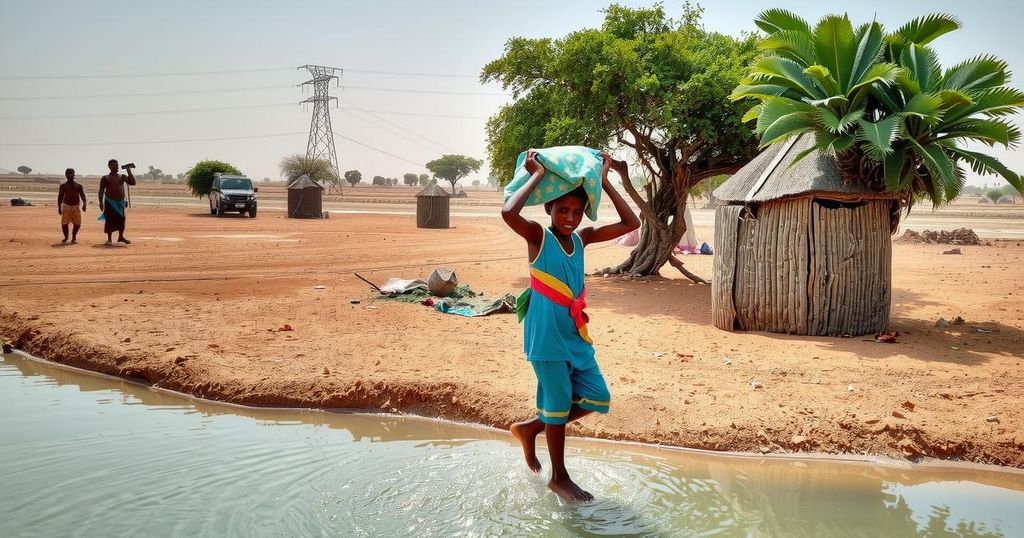Understanding Climate Change and Its Impact on Human Mobility in Chad

IOM is collecting and analyzing data on the impact of climate change on human mobility in Chad, a country facing significant environmental challenges. Increased natural hazards due to climate change threaten livelihoods, leading to migration. The IOM’s Displacement Tracking Matrix provides critical insights despite limitations in data focused specifically on climatic factors.
The International Organization for Migration (IOM) has intensified its efforts to understand the ramifications of climate change on human mobility in Chad, a country that faces severe environmental challenges. Increasing incidents of flooding, droughts, and extreme heat, fueled by climate change, are exacerbating vulnerabilities among Chad’s predominantly agrarian and pastoral communities. These climatic shifts have led to a rise in disaster occurrences and conflicts, creating pressures that may push inhabitants to migrate.
Historically, Chad has served as a hub for various migration patterns; however, the lack of comprehensive data on environmental migration complicates efforts to grasp the intricate relationship between climate change and human mobility in the region. The IOM’s Displacement Tracking Matrix (DTM) has been central to gathering and analyzing relevant population movement data, thereby aiding decision-making processes for humanitarian responses.
Utilizing DTM datasets collected in 2023, IOM has developed a new dashboard to depict the impact of climate change and related environmental degradation on mobility patterns in Chad. It is important to note that the tools employed for this data collection were not specifically designed for the aspects of climate influence on migration, leading to limitations in the scope of information presented. Nevertheless, these insights underscore the urgent need to address the gaps in data regarding how climatic and environmental factors affect migration dynamics and community resilience in Chad.
This ongoing analysis is pivotal for enhancing support mechanisms for displaced and mobile populations, ensuring that response measures are closely aligned with the contextual circumstances they face. Better-informed interventions can significantly improve outcomes for those affected by the dual challenges of climate change and displacement in Chad.
The Sahel region in West and Central Africa, where Chad is situated, is acutely affected by climate change. The increased frequency of natural disasters such as floods and droughts heightens the vulnerabilities of Chad’s population, many of whom derive their livelihoods from agriculture and pastoralism. As climatic conditions become more unpredictable, traditional ways of life are threatened, prompting people to migrate either for survival or better opportunities. This scenario underscores the necessity for reliable data on how climate change influences migration trends, which has historically been insufficient.
In summary, the growing impacts of climate change and environmental hazards in Chad necessitate urgent action and detailed data collection to better understand and respond to human mobility challenges. The comprehensive use of data by the IOM through DTM initiatives aims to bridge existing information gaps, ultimately facilitating more effective and context-sensitive responses to the needs of displaced populations.
Original Source: reliefweb.int






